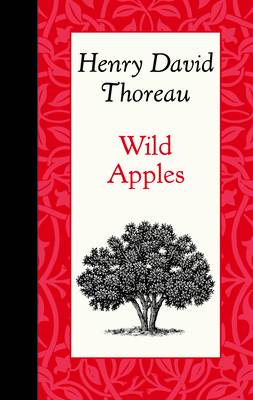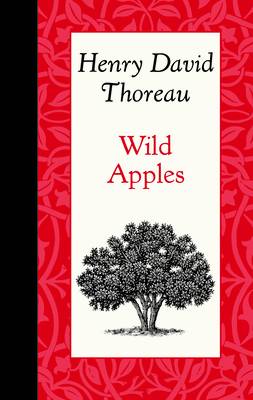
Bedankt voor het vertrouwen het afgelopen jaar! Om jou te bedanken bieden we GRATIS verzending (in België) aan op alles gedurende de hele maand januari.
- Afhalen na 1 uur in een winkel met voorraad
- In januari gratis thuislevering in België
- Ruim aanbod met 7 miljoen producten
Bedankt voor het vertrouwen het afgelopen jaar! Om jou te bedanken bieden we GRATIS verzending (in België) aan op alles gedurende de hele maand januari.
- Afhalen na 1 uur in een winkel met voorraad
- In januari gratis thuislevering in België
- Ruim aanbod met 7 miljoen producten
Zoeken
Omschrijving
Thoreau's "Wild Apples" first appeared in The Atlantic Monthly in November of 1862. The story begins with a short history of the apple tree, tracing its path from ancient Greece to America. Thoreau saw the apple as a perfect mirror of man, and eloquently lamented where they were both heading. Though his words were written more than 150 years ago, they live on today as a reminder of the need to preserve what is wild. Thoreau wrote, "...our wild apple is wild only like myself, perchance, who belong not to the aboriginal race here, but have strayed into the woods from the cultivated stock." This short work is part of Applewood's "American Roots" series, tactile mementos of American passions by some of America's most famous writers and thinkers.
Specificaties
Betrokkenen
- Auteur(s):
- Uitgeverij:
Inhoud
- Aantal bladzijden:
- 56
- Taal:
- Engels
- Reeks:
Eigenschappen
- Productcode (EAN):
- 9781429096195
- Verschijningsdatum:
- 31/10/2015
- Uitvoering:
- Hardcover
- Formaat:
- Genaaid
- Afmetingen:
- 109 mm x 170 mm
- Gewicht:
- 90 g

Alleen bij Standaard Boekhandel
+ 27 punten op je klantenkaart van Standaard Boekhandel
Beoordelingen
We publiceren alleen reviews die voldoen aan de voorwaarden voor reviews. Bekijk onze voorwaarden voor reviews.









